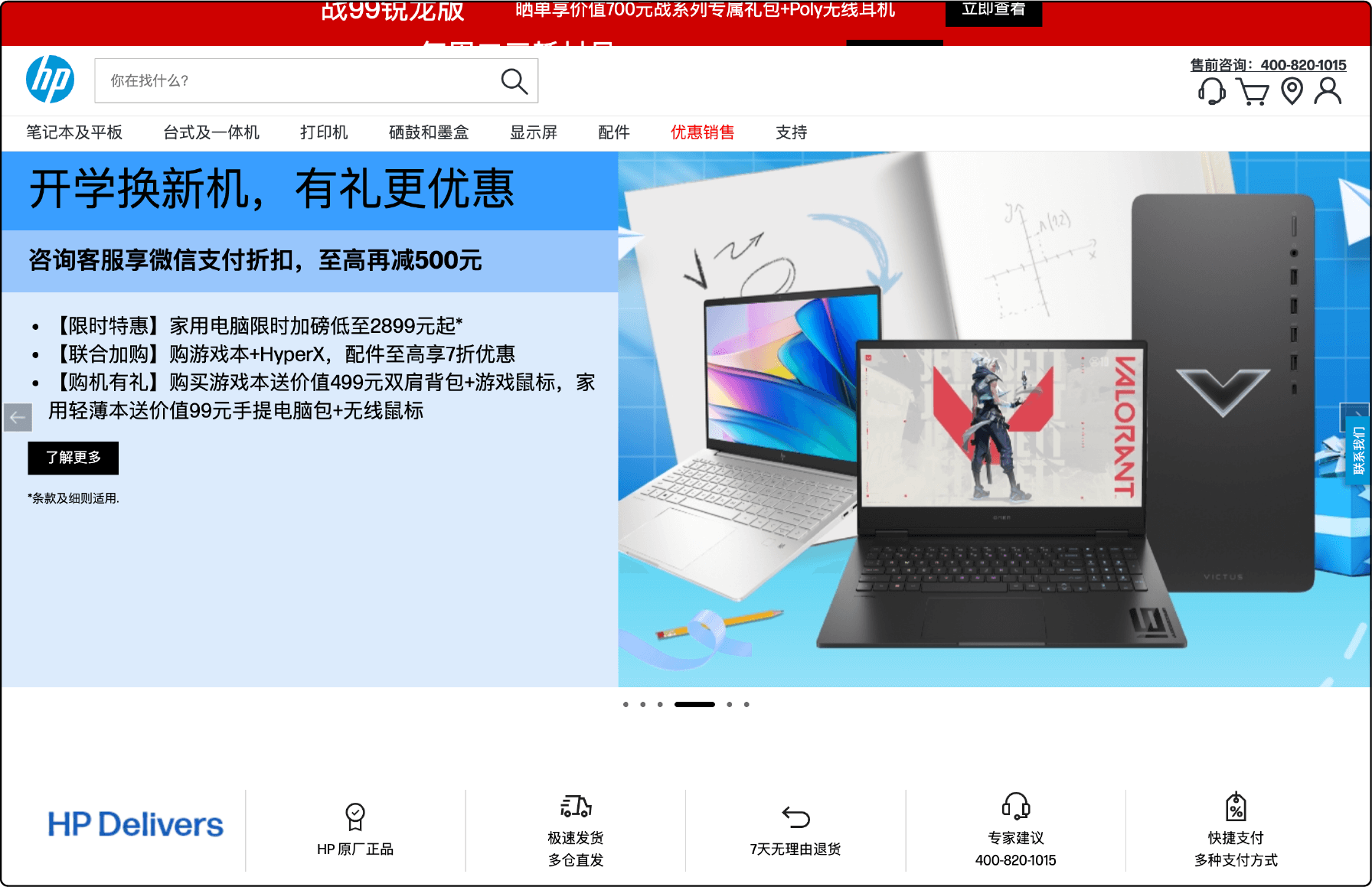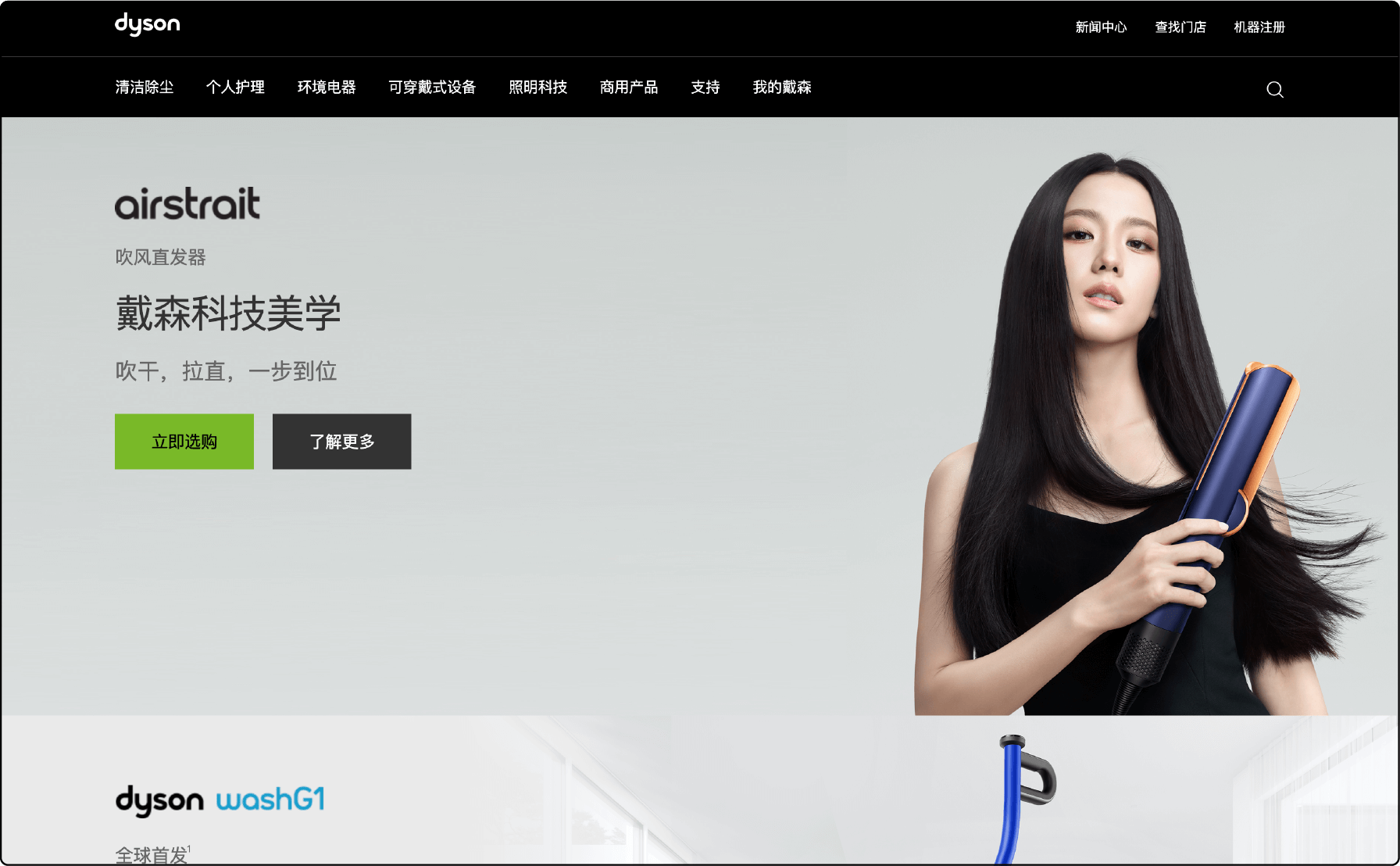
Magento Hosting China: Scalability Best Practices for Peak Seasons
For peak seasons, the right Magento hosting China offers the needed scalability to handle the sudden surge in traffic and transactions. Scalability refers to the ability of a system to handle an increased workload without compromising performance. This article will discuss the best practices for ensuring scalability in your Magento hosting during peak seasons in China.
Key Takeaways
-
Scalability ensures Magento stores can handle peak traffic without compromising performance.
-
Key scalability features include capacity growth handling, flexible resource scaling, and maintaining performance under pressure.
-
Peak shopping seasons in China drive massive sales volumes and require strategic preparation.
-
Types of scalability include horizontal and vertical scaling, with auto-scaling providing dynamic resource adjustment.
-
Magento hosting improvements like load testing, CDN integration, and performance optimization are important for success in China.
What is Scalability in Magento Hosting?
Scalability in Magento hosting refers to the ability of a Magento e-commerce platform to handle increased loads without compromising on performance, speed, or user experience.
This concept is necessary for maintaining the efficiency and reliability of an online store. It's essential during traffic surges like peak shopping or promotional events.
Key scalability features are:
-
Capacity to Handle Growth: As your online business grows, so does the number of visitors to your Magento store. Scalability ensures that your hosting environment can accommodate this growth, whether a gradual increase or a sudden spike in traffic.
-
Flexibility to Scale Resources: It involves the ability to quickly and easily add or reduce resources such as CPU power, RAM, and storage, depending on the current demand. This flexibility is key to maintaining optimal website performance during fluctuating traffic levels.
-
Performance Under Pressure: Scalable Magento hosting maintains high performance even as concurrent users increase. Page load times remain fast, and transactions can be processed smoothly, necessary for customer satisfaction and conversion rates.
-
Cost-Effectiveness: Proper scalability allows for efficient use of resources, ensuring you only pay for what you need when needed. This approach is more cost-effective than maintaining a high-capacity server round the clock, especially if high traffic levels are occasional.
-
Enhanced User Experience: By ensuring that your Magento store can handle high traffic volumes efficiently, scalability directly contributes to a better Magento UX. Regardless of visitor numbers, fast loading times and responsive design help reduce bounce rates and improve overall satisfaction.
-
Technical Aspects: From a technical perspective, scalability involves several strategies and technologies, including but not limited to server clustering, load balancing, efficient caching mechanisms, and the use of Content Delivery Networks (CDNs) to distribute the load.
Significance of Peak Shopping Seasons in China
1. Massive Sales Volume
Events like Singles' Day (November 11th), Double Twelve (December 12th), and the Chinese New Year shopping season are known for record-breaking sales. Singles' Day, for example, consistently surpasses global sales events such as Black Friday and Cyber Monday, making it the largest online shopping day in the world.
2. Cultural Phenomenon
These shopping festivals have become a cultural phenomenon in China, with consumers eagerly anticipating the massive discounts and special offers. The hype around these events creates a heightened sense of urgency and excitement, driving even higher traffic volumes to online stores.
3. Strategic Opportunities for Brands
For Magento store owners, these peak seasons offer a strategic opportunity to increase brand visibility, attract new customers, and boost sales significantly. Successfully capitalizing on these periods requires promotional strategies and a scalable Magento hosting environment to handle the surge in online traffic.
4. Innovative Marketing Platforms
E-commerce giants like Alibaba and JD have transformed these shopping seasons into entertainment spectacles, featuring celebrities and launching interactive marketing campaigns.
Magento stores can leverage these platforms and their heightened consumer engagement during these periods.
5. Competition and Consumer Expectations
The competitive landscape during these peak shopping seasons is intense. Consumers have high expectations for discounts, product variety, and website performance.
A scalable Magento hosting solution ensures that stores can handle the increased load, maintain fast loading times, and provide a seamless shopping experience, important for converting traffic into sales.
6. Logistics and Supply Chain Considerations
These shopping festivals also test the efficiency of logistics and supply chain operations. Magento stores must ensure their inventory management and shipping operations can scale to meet the rapid increase in orders. This challenge is directly influenced by the hosting environment's reliability and performance.
Types of Scalability
1. Horizontal Scaling

-
Definition: Horizontal scaling, also known as scaling out/in, involves adding more machines or instances to your pool of resources to handle increased load. It's akin to adding more lanes to a highway to accommodate more traffic.
-
Use Cases: Ideal for applications with a stateless architecture or when you need to increase your application's availability and redundancy.
2. Vertical Scaling

-
Definition: Vertical scaling, or scaling up/down, involves adding more power (CPU, RAM, Storage) to your existing machine. This is done without the need for additional physical hardware.
-
Use Cases: Suitable for applications that require more computing power or memory to improve performance. This is especially useful when it's easier or more cost-effective than adding more machines.
3. Auto Scaling

-
Definition: Auto scaling dynamically adjusts the amount of computational resources based on the server load. It can scale resources up or down automatically without manual intervention.
-
Use Cases: Best for environments with unpredictable traffic, ensuring that the application can handle sudden spikes without human intervention.
4. Manual Scaling

-
Definition: Manual scaling requires human intervention to adjust the resources allocated to the hosting environment. It involves planning and implementing scaling strategies based on anticipated changes in load.
-
Use Cases: Suitable for predictable, seasonal traffic spikes where you can plan resource allocation.
5. Predictive Auto-scaling

-
Definition: Predictive auto-scaling uses machine learning algorithms. It predicts traffic patterns and adjusts resources automatically. This is done in anticipation of future demand.
-
Use Cases: Ideal for businesses with predictable traffic patterns and spikes, allowing for proactive scaling based on historical data.
Preparing Magento for Peak Shopping Seasons
1. Analyzing Past Traffic Data
-
Gather Historical Data: Review traffic, sales, and performance data from previous peak seasons to identify trends and patterns.
-
Identify Peak Times: Pinpoint the specific days and times when traffic was highest to understand when your store will be most stressed.
-
Performance Benchmarks: Assess how your Magento store performed under peak loads in the past, noting any slowdowns or downtime.
2. Utilizing Analytics to Predict Traffic Surges
-
Forecasting Tools: Use analytics tools to project future traffic surges based on historical data and growth trends.
-
Customer Behavior Analysis: Analyze customer behavior during peak seasons to better anticipate their needs and potential stress points on your infrastructure.
-
Marketing Campaign Impact: Factor in the potential impact of your marketing efforts on traffic increases to ensure accurate predictions.
3. Infrastructure Audit
-
Current Capacity Evaluation: Examine your current hosting setup, including server capacity, bandwidth, and resource utilization, to assess its ability to handle increased demand.
-
Scalability Check: Verify that your hosting solution can scale up resources quickly and efficiently through auto-scaling capabilities or manual intervention.
-
Redundancy and Failover: Ensure Magento backup systems and failover mechanisms are in place to maintain uptime in case of hardware failure or unexpected traffic spikes.
4. Assessing Current Hosting Setup for Scalability Potential
-
Compatibility with Scaling Strategies: Determine if your current setup supports horizontal or vertical scaling—or both—based on your needs.
-
Performance Optimization Opportunities: Identify areas for optimization in your Magento installation, including caching, database indexing, and code efficiency.
-
Load Balancing: Consider implementing or optimizing load balancing solutions to distribute traffic evenly across servers, preventing any single server from becoming a bottleneck.
5. Load Testing
-
Simulate Peak Loads: Use load testing tools to simulate traffic spikes and assess how your infrastructure copes, allowing you to identify and rectify potential bottlenecks.
-
Gradual Load Increases: Gradually increase the simulated load to determine when your current setup begins to struggle.
6. Optimizing for Speed
-
Content Delivery Networks (CDNs): Consider utilizing CDNs to serve static content from servers closer to users, reducing latency and improving page load speeds.
-
Caching Strategies: Investigate different caching strategies, such as full page cache or object caching, to reduce server load and improve response times.
-
Code Optimization: Review your codebase for any inefficient or resource-intensive processes that could be optimized to improve performance.
7. Updating and Patching
-
Software Updates: Ensure all software components, including Magento, are up-to-date with the latest security patches and performance improvements.
-
Third-Party Extensions Audit: Review and update any third-party extensions to ensure they are compatible with the latest Magento version and not introduce performance issues.
Technical Best Practices for Scalability
1. Server Optimization
-
Recommended Server Specifications for High Traffic: Identify the ideal server configurations. These include CPU, RAM, and disk space. Aim to handle peak loads efficiently.
-
Configuring Your Server for Optimal Performance: Adjust server settings, such as memory limits and execution times, to optimize for Magento's resource-intensive operations.
2. Database Optimization
-
Techniques for Optimizing Database Performance: Implement best practices like indexing, query optimization, and regular cleanups to reduce load times and improve responsiveness.
-
Tools for Monitoring and Managing Database Health: Utilize tools like MySQL Workbench or phpMyAdmin for ongoing database monitoring and maintenance to prevent bottlenecks.
3. Implementing Caching Solutions
-
Types of Caching Mechanisms: Explore various caching technologies such as Varnish, Redis, and Full Page Cache to speed up content delivery.
-
Configuring Caching for Magento: Detailed guidance on setting up and fine-tuning caching mechanisms specifically for Magento to ensure maximum efficiency.
4. Content Delivery Networks (CDN)
-
How CDNs Improve Load Times and Scalability: Explanation of how CDNs work to distribute content closer to users, thereby reducing latency and server load.
-
Selecting a CDN for the Chinese Market: Advice on choosing a Magento CDN provider that offers optimal performance and compliance with Chinese internet regulations.
5. Auto-Scaling Solutions
-
Overview of Auto-Scaling and How It Benefits Magento Sites: Introduction to auto-scaling and its significance in adapting to traffic fluctuations without manual intervention.
-
Cloud Services Offering Auto-Scaling Features Suitable for China: Recommendations for cloud platforms that provide effective auto-scaling solutions that cater to the Chinese market's unique challenges.
Magento-Specific Considerations
1. Magento Configuration for High Traffic
-
Backend Settings to Adjust Before Peak Seasons: Insights into specific Magento backend configurations that can help accommodate increased traffic, such as enabling flat catalogs and combining CSS and JavaScript files.
-
Utilizing Magento Performance Toolkit: Guide on using Magento's built-in performance toolkit to identify performance issues and benchmark your site's performance.
2. Extensions and Modules
-
Selecting Scalable Extensions: Criteria for choosing extensions optimized for performance and scalability, ensuring they don't hinder your site's load time.
-
Avoiding Common Pitfalls with Third-Party Modules: Tips on how to vet third-party modules for quality and compatibility to prevent potential conflicts that could impact site performance.
Testing and Monitoring
1. Load Testing
-
How to Conduct Load Testing Before Peak Seasons: Step-by-step approach to planning and executing load tests that simulate real-world traffic conditions to prepare your Magento store for peak demand.
-
Identifying Capacity Limits: Use load testing to understand the maximum number of users and transactions your ecommerce site can handle before performance degrades, helping to guide scalability improvements.
2. Real-Time Monitoring Tools
-
Tools and Services for Monitoring Your Magento Store’s Performance in Real-Time: Overview of tools like New Relic, Dynatrace, or Magento's built-in monitoring tools that can provide insights into your store's performance and help identify issues as they arise.
-
Setting Up Alerts for Performance Thresholds: Configure alerts within these tools to notify you when performance metrics exceed predefined thresholds, allowing immediate action to mitigate issues.
3. Responding to Performance Issues
-
Tips for Quick Response to Scalability-Related Problems: Strategies for quickly diagnosing and addressing performance issues, including establishing a response plan and utilizing real-time monitoring data for swift problem resolution.
-
Creating a Scalability Incident Response Team: Assemble a dedicated team responsible for responding to Magento scalability and performance issues, ensuring clear roles and communication channels for efficient problem-solving during critical times.
5 Examples of Successful Magento Stores in China
1. Microsoft

-
Monthly Traffic: Approximately 900,000 visitors, highlighting the significant digital footprint of Microsoft's online presence in China.
-
Omnichannel Strategy: Uses a responsive design for desktop and mobile users. Incorporates WeChat mini-programs and live streaming. Provides a seamless customer experience across different channels.
-
Special Features: Includes education discounts. Offers interest-free installment payments. Provides a 30-day price guarantee. Features a dedicated shopping section for B2B customers. Accepts localized payment methods such as UnionPay, WeChat Pay, and Alipay.
2. Hewlett-Packard

-
Monthly Traffic: Around 400,000, indicating a strong online presence in the Chinese market.
-
Adobe Commerce Platform: Allows HP to manage multiple stores across different regions, offering a localized experience. It caters to the unique eCommerce culture in China.
-
Omnichannel Strategy: Features the “HP Mall” mobile application and WeChat mini-program, alongside integration with social media channels. It also includes retail store systems for a comprehensive online-to-offline (O2O) approach.
3. Omega

-
Monthly Traffic: About 200,000, showcasing Omega's successful penetration into the Chinese luxury watch market.
-
Omnichannel Presence: Beyond the desktop store, Omega offers a mobile layout. They also have an official WeChat mini-program. This is supplemented by social media marketing on platforms like WeChat, Weibo, and RED.
-
Special Features: Product comparison tool, social login via WeChat, local social media marketing integration, and local logistics options, including SF Express and China Post EMS.
4. Dyson

-
Monthly Traffic: Approximately 120,000, reflecting Dyson's growing popularity in China for home appliance shopping.
-
Omni-Channel Strategy: A desktop official store, mobile-optimized content, and a WeChat mini-program that integrates online shopping with a loyalty program for rewards and interactive features.
-
Special Features: Offers an online VR experience store, mobile binding and dynamic verification code login support, and localized payment options.
5. H&M

-
Monthly Traffic: Around 110,000, demonstrating H&M's effective digital engagement with fashion-conscious consumers in China.
-
Omnichannel Strategy: Besides a desktop online store, H&M has developed a mobile application and a corresponding WeChat mini-program, facilitating easy access through the WeChat official account.
-
Special Features: A “Favorites” function tailored to Chinese consumers, integration of multi-channel sales, support for multiple delivery methods, and localized social login options.
FAQs
1 . Is localization necessary for luxury brands entering the Chinese market?
To succeed in China's complex and unique market, luxury brands must localize their strategies and offerings.
This involves catering to local preferences and behaviors, understanding Chinese consumers' preferences and cultural nuances, and adapting to the country's digital landscape. Failing to do so can lead to an unsuccessful market entry or limited success in the long run.
2 . What are some key elements of a successful localization strategy for global brands in China?
Some key elements of a successful localization strategy include understanding local consumer behavior and preferences. It involves establishing strong partnerships with local platforms and influencers, offering localized payment options, and providing culturally relevant content and marketing campaigns.
Additionally, utilizing popular digital channels like WeChat to engage with consumers is needed. Brands must continuously adapt and evolve strategies based on the ever-changing Chinese market.
3 . How can Magento hosting help with localizing online stores in China?
Magento hosting is created to enhance an online store's performance, speed, and functionality. This ensures a seamless user experience, particularly in markets like China. Chinese consumers have high expectations for fast and reliable digital services.
Magento hosting provides localization features like multi-language support and localized payment options. This helps global brands better serve Chinese consumers.
4 . What are the key Magento hosting features for Chinese stores?
Some key Magento hosting features for Chinese stores include multi-language support. They also offer localized payment options like WeChat Pay and Alipay. Additionally, optimized server performance ensures faster website loading speeds.
Robust security measures protect against cyber threats. Hosting providers may also offer specialized services such as CDN integration and DDoS protection tailored for the Chinese market.
5 . How can Magento hosting improve website loading speeds in China?
Magento hosting China uses advanced caching techniques, optimized server configurations, and CDN integration to boost website loading speeds in China.
These features reduce latency and enhance performance, facilitating easier access for Chinese consumers to browse online stores. Some hosting providers have servers in China, further cutting loading times for local customers.
Summary
Scalable Magento hosting in China focuses on key user experience elements like site speed and localization, which are essential for attracting Chinese consumers. Ecommerce success in China may depend on choosing the right managed Magento hosting services. It should match the specific needs of the Chinese market.



